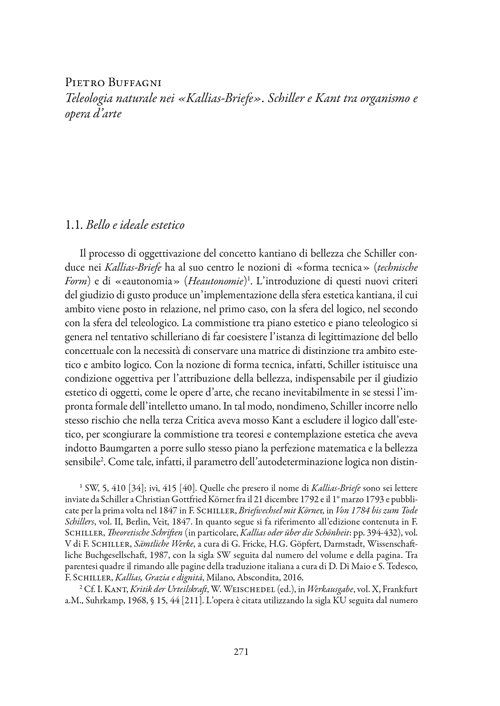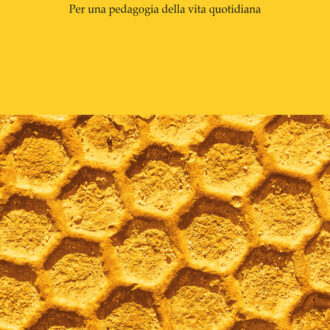ABSTRACT
Questo studio riprende in esame i famosi Kallias-Briefe, il saggio fondativo della filosofia schilleriana, con l’intento di mostrare come il superamento schilleriano della dicotomia kantiana tra estetico e teleologico instauri un legame tra il concetto schilleriano del bello e la nozione kantiana di organismo. La commistione tra estetico e teleologico avvicina il concetto schilleriano del bello alla nozione kantiana di «ideale della bellezza», nella quale questo contributo individua il modello di cui Schiller si serve, nei Kallias-Briefe, per la determinazione della struttura formale del proprio concetto del bello. In secondo luogo, l’articolo indaga come Schiller teorizzi per la prima volta nei Kallias-Briefe una continuità tra natura e ragione, tema di rilievo centrale sia per la successiva produzione filosofica schilleriana, sia per il pensiero idealistico tedesco. La riformulazione schilleriana della nozione di «eautonomia», di origine kantiana, traduce il concetto di finalità in una proprietà costitutiva degli enti organici, fondando così la teleologia naturale su un piano indipendente dalla facoltà soggettiva di giudizio. In tal senso, l’attribuzione di un carattere razionale alla natura si pone alla base dell’analogia tra l’autodeterminazione razionale del soggetto e la natura finalisticamente ordinata.
Parole chiave: Schiller, Kant, Kallias, organismo, arte.
The study examines the famous Kallias-Briefe, the founding essay of Schiller’s philosophy, with the aim of showing how Schiller’s overcoming of the Kantian dichotomy between the aesthetic and the teleological establishes a link between Schiller’s concept of beauty and Kant’s notion of organism. The mixture of the aesthetic and the teleological brings Schiller’s concept of beauty close to Kant’s notion of the «ideal of beauty», which is the model of the formal structure of his concept of beauty. Secondly, the article studies how Schiller develops in the Kallias-Briefe the thesis of a continuity between nature and reason, a theme of major importance both for Schiller’s later philosophical production and for German idealistic thought. Schiller’s reformulation of the notion of «heautonomy», of Kantian matrix, translates the concept of finality into a constitutive property of organic entities, thus founding natural teleology on a level independent of the subjective faculty of judgement. In this sense, the attribution of a rational character to nature stands at the core of the analogy between the rational self-determination of the subject and the finalistic order of nature.
Keywords: Schiller, Kant, Kallias, organism, art












Recensioni
Ancora non ci sono recensioni.